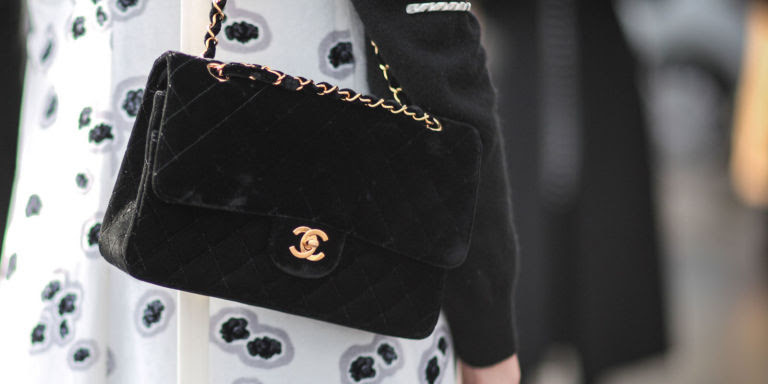The anonymous Raven writer of the Cosmographia work mentions the Castrum Ruby already in the 7th century, writing about Istria from the 4th to the 5th century: the city then, with its one-and-a-balked seafront, on the other hand, protected the locals from the Gothic alley at 5th. Century, as well as from Slavic, Avarian and Langobas attacks in the 6th and 7th centuries. In 476 Rovinj became part of the Western Roman Empire. This period lasts for a short time, since already 489th German Odoakar commander assumes authority over Rovinj. Theodoric, the leader of the Eastern Goths, won 496 in Istria and Rovinj. After Gothic, Rovinj was under Byzantine rule from the 6th to the 7th century. Prior to the end of the Byzantine rule in Istria, Rovinj was so economically strong that after Pula and Porec paying for the Empire of the Solids and the Trenta 60 Solids, they paid a tax of some 40 solid. In 804, Rovinj participated in the famous Rižanska placita, where Istrian cities are slandered by the Croatian-Slavic settlements of Istria. Even the Neretians and their navy sailed into the waters around Rovinj. In 876 the Croatian prince of Domagoj plundered and burned Rovinj. This event greatly undermined its economic development. Rovinj 967. belongs under the rule of the Aquila Patriarch. In 1188 he signed a contract with Dubrovnik which obliged both parties to trade and exchange the goods. In the next two centuries, Rovinj builds its self-government. The Grand Council and Assembly of Citizens form a Legislative Body, while the Consul and Sindico are executive. The Grand Chamber was convened for the most important tasks, such as war-related decisions, peace agreements, legislation, taxes and taxes, election of municipal magistrates, division of land, etc. The Grand Chamber was composed of a limited number of the richest and most influential citizens. Democracies of Rovinj can also be seen in convening all citizens in the municipal assembly, which has made the most important decisions for the city. It is considered that Rovinj had a statute already in the 13th century, while the new statute dates back to 1531. In the 13th century, Rovinj came into conflict with Piran, who in communion with Koper in 1207 launched a war against Rovinj and destroyed its surroundings. In the middle of the 12th century Venice occupied the Istrian coast. After unsuccessful resignation to Venice, in 1283, Rovinj was conquered and will remain under the rule of Venice until its disappearance from the historic stage of 1797. The city is then governed by a decree of noble noblemen from Venice. The most renowned Rovinj historian, Bernardo Benussi, speaking of Venetian authority and their rulers in the city, notes that after being served for sixteen months rarely greeted at the outset. Podestat had an ingerence over church, political, administrative, trade and other affairs. Judiciary assistants were assisted by the judges in the performance of judicial affairs, and they were also involved in criminal and civil matters. During the Middle Ages, the town has developed a local nobility, which has a stake in the Council and in all components of public activity. In the middle of the 14th century, Genoa braved with Venice. The Genovian fleet, led by Pieter Doria, robbed Poreč and took the relic of St. Maura and St. Eleuterija. Soon, Genova ships come to the island of Rovinj and after they have taken it they penetrate to the church of St. Jura will evict the remains of St. Euphemia. After twenty-one years of absence from his town, the saint was returned to Rovinj in 1401. At that time, Rovinj lived on a small island enclosed in less than one square kilometer. He was struggling hard, in constant water scarcity, and in common premises with animals, which were indispensable for agriculture, and fishing was the most important means of survival. It is interesting that the Rovinj coat of arms, a red heraldic cross in the white field, appears at this time in the 14th and 15th centuries. Like many towns and villages in Istria, and in 1465, Rovinj was struck by the plague. The plague did not cause too much damage to Rovinj, but it did cause difficulties, some of which were difficult to recover, which led to greater poverty, and it was necessary to take care of that part of the population.
| ||||||||||||||||||||||||||||||||||||||||||||||||||||||||||||||||||||||||||||||||||||||||||||||||||||||||||||||||||||||||||||||||||||||||||||||||||||||||||||||||||||||||||||||||||||||||||||||||||||||||||||||||||||||||||||||||||||||||||||||||||||||||||||||||||||||||||||||||||||||||||||||||||||||||||
| ||||||||||||||||||||||||||||||||||||||||||||||||||||||||||||||||||||||||||||||||||||||||||||||||||||||||||||||||||||||||||||||||||||||||||||||||||||||||||||||||||||||||||||||||||||||||||||||||||||||||||||||||||||||||||||||||||||||||||||||||||||||||||||||||||||||||||||||||||||||||||||||||||||||||||
| ||||||||||||||||||||||||||||||||||||||||||||||||||||||||||||||||||||||||||||||||||||||||||||||||||||||||||||||||||||||||||||||||||||||||||||||||||||||||||||||||||||||||||||||||||||||||||||||||||||||||||||||||||||||||||||||||||||||||||||||||||||||||||||||||||||||||||||||||||||||||||||||||||||||||||
| ||||||||||||||||||||||||||||||||||||||||||||||||||||||||||||||||||||||||||||||||||||||||||||||||||||||||||||||||||||||||||||||||||||||||||||||||||||||||||||||||||||||||||||||||||||||||||||||||||||||||||||||||||||||||||||||||||||||||||||||||||||||||||||||||||||||||||||||||||||||||||||||||||||||||||
| ||||||||||||||||||||||||||||||||||||||||||||||||||||||||||||||||||||||||||||||||||||||||||||||||||||||||||||||||||||||||||||||||||||||||||||||||||||||||||||||||||||||||||||||||||||||||||||||||||||||||||||||||||||||||||||||||||||||||||||||||||||||||||||||||||||||||||||||||||||||||||||||||||||||||||

| |||||||||||||||||||||||||||||||||||||||||||||||||||||||||||||||||||||||||||||||||||||||||||||||||||||
| You are currently subscribed to ILTV.tv as: tokic.stjepan719@gmail.com Add info@iltv.tv to your email address book to ensure delivery Unsubscribe J Media Global | 5455 Wilshire Blvd #1000 | Los Angeles, CA 90036 |































































Nema komentara:
Objavi komentar